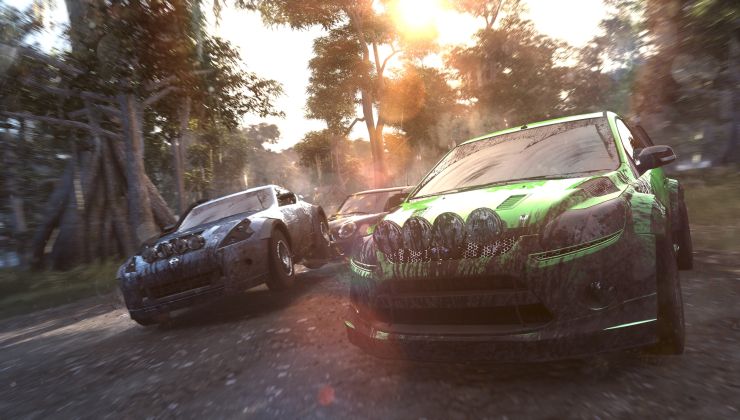Valve have put up SteamVR for Linux officially in Beta form and they are keen to stress that this is a development release.
You will need to run the latest Steam Beta Client for it to work at all, so be sure to opt-in if you want to play around with it.
VR on Linux will exclusively use Vulkan, so it's going to be a pretty good push for Vulkan if VR becomes more popular. Vulkan is likely one of the pieces of the puzzle that held it back, since Vulkan itself and the drivers are still so new.
On NVIDIA, you need to have the 375.27.10 "Developer Beta Driver", which can be found here. There's also this PPA for Ubuntu users. It's likely it needs some newer Vulkan extensions not found in the current stable drivers.
For AMD GPU owners, you need a very recent build of the open source radv driver (Mesa), Valve provide this pre-release on their github page.
Intel GPUs are not supported and it's probable it will be a long time until they are, since VR generally requires some beefy hardware to run smoothly. It's possible they may work in future, but I imagine the Intel 'anv' Vulkan driver needs more work done.
Also, you will likely need some updated udev rules, but all of that and more can be read about on their github page for it.
It's exciting to finally see VR on Linux starting to become a real reality now. I just wish the hardware wasn't so damn expensive. It will likely be a long time before I can afford a headset myself to review, but hopefully someone can send us a review unit to hold onto.
Thanks for tweeting it to me Dennis.
You will need to run the latest Steam Beta Client for it to work at all, so be sure to opt-in if you want to play around with it.
VR on Linux will exclusively use Vulkan, so it's going to be a pretty good push for Vulkan if VR becomes more popular. Vulkan is likely one of the pieces of the puzzle that held it back, since Vulkan itself and the drivers are still so new.
On NVIDIA, you need to have the 375.27.10 "Developer Beta Driver", which can be found here. There's also this PPA for Ubuntu users. It's likely it needs some newer Vulkan extensions not found in the current stable drivers.
For AMD GPU owners, you need a very recent build of the open source radv driver (Mesa), Valve provide this pre-release on their github page.
Intel GPUs are not supported and it's probable it will be a long time until they are, since VR generally requires some beefy hardware to run smoothly. It's possible they may work in future, but I imagine the Intel 'anv' Vulkan driver needs more work done.
Also, you will likely need some updated udev rules, but all of that and more can be read about on their github page for it.
It's exciting to finally see VR on Linux starting to become a real reality now. I just wish the hardware wasn't so damn expensive. It will likely be a long time before I can afford a headset myself to review, but hopefully someone can send us a review unit to hold onto.
Thanks for tweeting it to me Dennis.
Some you may have missed, popular articles from the last month:
All posts need to follow our rules. For users logged in: please hit the Report Flag icon on any post that breaks the rules or contains illegal / harmful content. Guest readers can email us for any issues.
The problem is that NOTHING is using the nVidia VR boosting tech, outside of perhaps the nvidia funhouse.
And I hope it stays that way. Nvidia have always been one for the "split and conquer" strategy, like Microsoft. They pollute all other attempts at making clever APIs and standards, always have, always will. They make half-assed implementations of others work, and push their own version that does almost the same - only just for Nvidia cards.
It doesn't matter if that other version is bloody good. It's still pollution.
1 Likes, Who?
With Vulkan becoming mainstream, SteamVR about to be released and the next Debian stable release round the corner, can we expect a new SteamOS release and a new push for Steam Machines soon?
1 Likes, Who?
With Vulkan becoming mainstream, SteamVR about to be released and the next Debian stable release round the corner, can we expect a new SteamOS release and a new push for Steam Machines soon?SteamOS releases are pretty much in sync with the Debian releases. They already push "experimental" (SteamOS-dedicated) packages, such as their radv build. So, I wouldn't expect a brand new SteamOS release, but I wouldn't be surprised if they did a new SteamOS push in a few months (or 1-2 years), as it looks like they keep pressuring some publishers a bit.
Wait and see. And participate, of course :)
0 Likes
They do seem to follow (or try to) the Debian main releases, since there was a decent update when 8.7 was 'released'. I honestly think the main reason they went with Debian instead of Ubuntu is because of the stability it brings, and the lack of 'let's re-invent everything, and do it every 6 months.' mentality that Ubuntu has.
0 Likes








 How to set, change and reset your SteamOS / Steam Deck desktop sudo password
How to set, change and reset your SteamOS / Steam Deck desktop sudo password How to set up Decky Loader on Steam Deck / SteamOS for easy plugins
How to set up Decky Loader on Steam Deck / SteamOS for easy plugins
See more from me